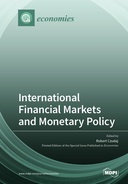Explore

International Financial Markets and Monetary Policy
0 Ungluers have
Faved this Work
Login to Fave
The global financial crisis plunged the global economy into a great recession. Many central banks responded with unconventional monetary policies such as quantitative easing, negative policy rates, and forward guidance to calm down financial markets. The COVID-19 pandemic led the global economy, financial markets, and central banks to face even more severe problems. Central banks set up further asset purchase programmes to complement existing unconventional monetary policy measures that have already been in place to help the economy to absorb the COVID-19 shock. The new crisis has increased the importance of preserving financial stability through the international cooperation of central banks around the globe. Managing the expectations of market participants plays a crucial role in the context of financial stability. Therefore, the aim of this Special Issue is to disseminate important empirical and theoretical research questions concerning the connection between monetary policy and international financial markets and to stimulate discussion among academics and policymakers. A special focus is devoted to emerging and developing economies. The Special Issue covers several different articles on a variety of topics from the fields of monetary policy and international financial markets. The contributions address research questions on exchange rates, cryptocurrencies, stock markets, the connection between money supply and inflation after the COVID-19 pandemic, the role of commodity price shocks for banking system stability in developing countries, global liquidity effects, the twin deficit, and the Taylor rule.
This book is included in DOAB.
Why read this book? Have your say.
You must be logged in to comment.
